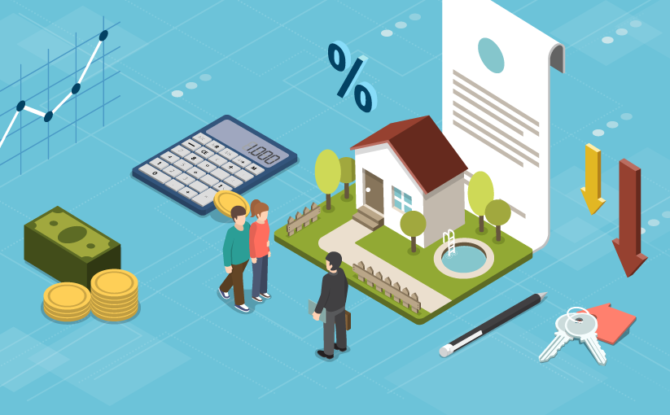
Top Best Loan Against Property in Chennai
Owning property in Chennai can be a valuable asset, not only for residential or commercial purposes, but also for accessing funds through a loan against property. In this article, we’ll explore the top best loan against property in Chennai, helping property owners make informed decisions when seeking financial assistance.
Key Takeaways
| Understanding Loan Against Property |
| Types of Loan Against Property |
| Top Best Loan Against Property Providers in Chennai |
| Comparison of Loan Against Property Providers |
| Factors to Consider When Choosing a Loan Against Property |
| How to Apply for a Loan Against Property |
| Conclusion |
| FAQs |
Introduction
A loan against property (LAP) is a secured loan obtained by pledging one’s property as collateral with a lender. Chennai, known for its thriving real estate market, offers numerous opportunities for property owners to leverage their assets for various financial needs, such as business expansion, debt consolidation, education expenses, or medical emergencies.
Understanding Loan Against Property
Definition and Purpose
A loan against property is a form of secured lending where borrowers pledge their property, whether residential, commercial, or industrial, as collateral to secure a loan from a financial institution. This type of loan allows property owners to unlock the equity in their properties and access funds at lower interest rates compared to unsecured loans.
Benefits and Risks
Benefits
- Lower interest rates compared to unsecured loans
- Longer repayment tenures for improved affordability
- Flexible end-use of funds for diverse financial needs
- Potential tax benefits on the interest paid, subject to applicable regulations
Risks
- Risk of losing the pledged property in case of default on loan repayment
- Impact on credit score and financial health if unable to meet repayment obligations
- Evaluation of property value and market conditions may affect loan eligibility and terms
Types of Loan Against Property
Residential Property Loan
- Purpose: Borrow against residential properties, such as flats, houses, or plots, owned by individuals or families.
- Ideal for: Homeowners seeking funds for personal or family-related expenses, such as education, wedding, or medical emergencies.
Commercial Property Loan
- Purpose: Utilize commercial properties, such as offices, shops, or warehouses, as collateral to secure funds for business expansion or working capital requirements.
- Ideal for: Entrepreneurs and business owners looking to finance business growth, invest in infrastructure, or consolidate debts.
Industrial Property Loan
- Purpose: Leverage industrial properties, such as factories, manufacturing units, or industrial plots, to access funds for capital investment or machinery procurement.
- Ideal for: Industrialists and manufacturers seeking financing for equipment purchase, technology upgrades, or infrastructure development.
Top Best Loan Against Property in Chennai
| Loan Provider | Interest Rate | Repayment Terms | Approval Process | Documentation Requirements | |
|---|---|---|---|---|---|
| 1 | State Bank of India | 10.60% - 11.30% | Up to 15 years | Quick approval, minimal documentation | KYC, income proof, property documents |
| 2 | Bank of Baroda | 10.85% - 16.50% | Up to 15 years | Fast disbursal, complete digital management | KYC, income documents, property documents |
| 3 | PNB Housing Finance | 9.25% - 15.00% | Up to 20 years | Quick processing, minimal paperwork | KYC, income proof, property documents |
| 4 | IDFC First Bank | 9.00% - 16.50% | Up to 18 years | On-the-spot approvals, fast disbursal | KYC, income proof, property documents |
| 5 | HDFC Bank Limited | 9.50% - 11.00% | Up to 20 years | Quick processing, minimal documentation | KYC, income proof, property documents |
| 6 | L&T Housing Finance | 9.50% onwards | Up to 20 years | Fast approval, transparent policies | KYC, income proof, property documents |
| 7 | LIC Housing Finance | 9.50% - 11.55% | Up to 20 years | On-the-spot approvals, fast disbursal | KYC, income proof, property documents |
| 8 | Godrej Housing Finance | 9.75% onwards | Up to 18 years | Quick approval, minimal documentation | KYC, income proof, property documents |
| 9 | ICICI Bank | 10.85% - 12.50% | Up to 20 years | Fast disbursal, complete digital management | KYC, income documents, property documents |
| 10 | Tata Capital | 10.10% onwards | Up to 18 years | Quick processing, minimal paperwork | KYC, income proof, property documents |
Comparison of Loan Against Property Providers
When comparing loan against property providers in Chennai, borrowers should consider factors such as interest rates, fees, loan-to-value ratio, eligibility criteria, and customer service. By evaluating these factors, property owners can choose a lender that offers the best combination of affordability, flexibility, and support to meet their financial needs.
Factors to Consider When Choosing a Loan Against Property
Loan Amount and Tenure
- Assess Equity: Determine the maximum loan amount based on the property’s market value and the lender’s loan-to-value ratio.
- Evaluate Repayment Options: Consider loan tenure options to find a repayment plan that aligns with your financial goals and cash flow.
Interest Rate Options
- Compare Rates: Research and compare interest rates offered by different lenders to find the most competitive option.
- Understand Terms: Review the terms and conditions, including fixed or floating interest rates, to choose the right rate structure for your needs.
Repayment Flexibility and Penalties
- Check Flexibility: Inquire about prepayment options, foreclosure charges, and penalties for late payments to understand the repayment flexibility.
- Negotiate Terms: Negotiate terms and conditions with the lender to ensure favourable terms and minimal financial impact in case of unforeseen circumstances.
How to Apply
Applying for a loan against property involves several steps:
- Documentation Required: Gather necessary documents, such as property documents, identity proof, income statements, and bank statements, to support the loan application.
- Loan Approval Process: Submit the loan application along with the required documents to the chosen lender.
- Property Evaluation: The lender assesses the property’s value and title to determine loan eligibility and sanction.
- Disbursement and Repayment: Upon approval, the loan amount is disbursed, and repayment begins as per the agreed-upon terms and schedule.
Conclusion
Securing a loan against property offers property owners a viable option to access funds for various financial needs while leveraging their valuable assets. By understanding the types of loan against property, comparing top providers, considering key factors, and following the application process, borrowers can make informed decisions and achieve their financial objectives with confidence.
FAQs
1. What are the typical interest rates for a loan against property in Chennai?
Ans: Interest rates for loan against property in Chennai vary depending on factors such as the lender, loan amount, tenure, and borrower’s profile. Generally, rates range from 8% to 15% APR.
2. How much loan can I get against my property in Chennai?
Ans: The loan amount you can obtain against your property in Chennai depends on factors such as the property’s market value, loan-to-value ratio, and repayment capacity. Typically, lenders offer loans ranging from 60% to 70% of the property’s value.
3. What is the tenure for a loan against property in Chennai?
Ans: The tenure for a loan against property in Chennai typically ranges from 5 to 15 years, depending on the lender’s policies and the borrower’s preferences. Longer tenures may result in lower EMI payments but higher overall interest costs.
4. Can I use commercial property as collateral for a loan against property in Chennai?
Ans: Yes, commercial properties such as offices, shops, warehouses, or industrial units can be used as collateral for a loan against property in Chennai. Lenders assess the property’s market value and title to determine loan eligibility and sanction.
5. Are there any tax benefits available on a loan against property in Chennai?
Ans: Yes, borrowers can avail of tax benefits on the interest paid towards a loan against property in Chennai under Section 24 of the Income Tax Act, subject to certain conditions. However, tax benefits on principal repayment are not applicable for a loan against property.

